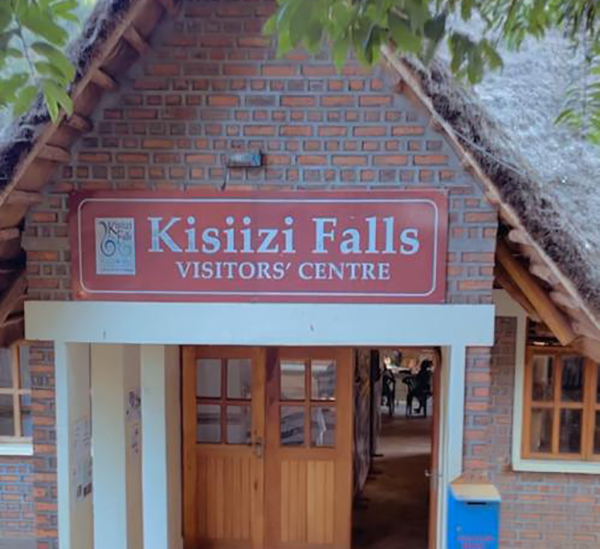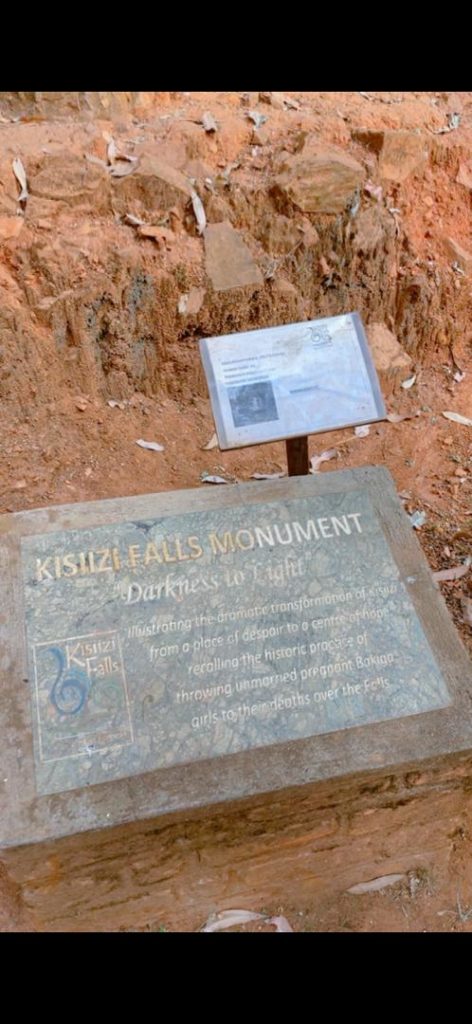The Traumatic History Of Kisiizi Falls Makes It A Top Tourist Destination In Uganda


Kisiizi Falls, situated in Rukungiri District in South-Western Uganda, are about 27 meters high and attract the world because of the rich history of this place.
Both local and foreign tourists are seen flooding Rukungiri district, not only to have a glimpse of the beautiful falls but also to learn about the events that happened in this place.
The gruesome acts that happened in this place give us a bigger picture of Bakiga culture and values back in the day.
Bakiga believed that a girl getting pregnant before marriage would upset the equilibrium of society and bring shame to the family.
Gruesome punishments, which entailed throwing unmarried pregnant Bakiga girls over the waterfall, were done, and this brought suffering, pain, and death to the girls who got pregnant before marriage.
A family gathering would be held, and if a girl was found guilty, arrangements were immediately made for this ritual to be carried out.
This was torturous, degrading, and humiliating for both the victim and her family, but they had to do what society expected of them.
Pregnant, unmarried Bakiga girls were brought to the top of the falls on a stretcher (local ambulance) while tied with ropes and accompanied by their whole family.
It was the girl’s own brother who had to push her over the waterfall, resulting in the deaths of the girl and the unborn child.
Culturally, the brother performed the act of throwing his sister over the waterfall because he was the most affected when his sister got pregnant.
The brother relied on his sister’s bride price to arrange for his own marriage. The bride price that was given to the girl was the same price her brother would use when getting married.
The aunt was also affected because she was in charge of grooming the girl child, so a girl getting pregnant didn’t only bring shame to the family but to the aunt as well since this was a sign that she had failed in her senga duties.
The aunt also benefited from the bride price when a girl was successfully married off, so a girl getting pregnant before marriage devalued her since men preferred virgins and childless women, and those were the ones they were willing to pay the bride price for.
Virginity was very important in African culture, and it made a girl a good candidate for marriage. A virgin girl was worth many cows when getting married, and this benefited the family.
Back in the day, women were seen as property, and parents put a price on their daughters. In many communities, the standard payment was for cows, goats, sheep, and so on.
From way back, Bakiga were known to be people who kept their word, and if an offense was committed, they would follow through with the punishment.
The number of girls murdered in this gruesome way is still unknown since every family did the act on their own and in their own time.
This horrible act came to an end one fateful day when the lives of three innocent souls were lost (the girl, the unborn baby, and the brother). While pushing the sister over the waterfall, the sister held onto her brother’s hand, and both of them fell over the waterfall, hence losing their lives.

Missionaries and the Church of Uganda intervened, and that is when this cruel custom that had caused the deaths of many girls came to an end.
What had been a place of despair became a place of hope and healing as Kisiizi Hospital was founded by missionary John Sharp in 1958 and later taken over by the North Kigezi Diocese of the Church of Uganda.
The bone-chilling Kisiizi Falls Monument is a masterpiece that acts as a visual reminder of the events that happened in this place. From being a place of death and hopelessness back in the day to a place of healing and hope today.
The punishment style was not only exhibited at Kisiizi Falls but also at Punishment Island on Lake Mutanda in Kisoro District and Lake Bunyonyi in Kabale, where unmarried pregnant Bakiga girls were abandoned and left to starve and die.
